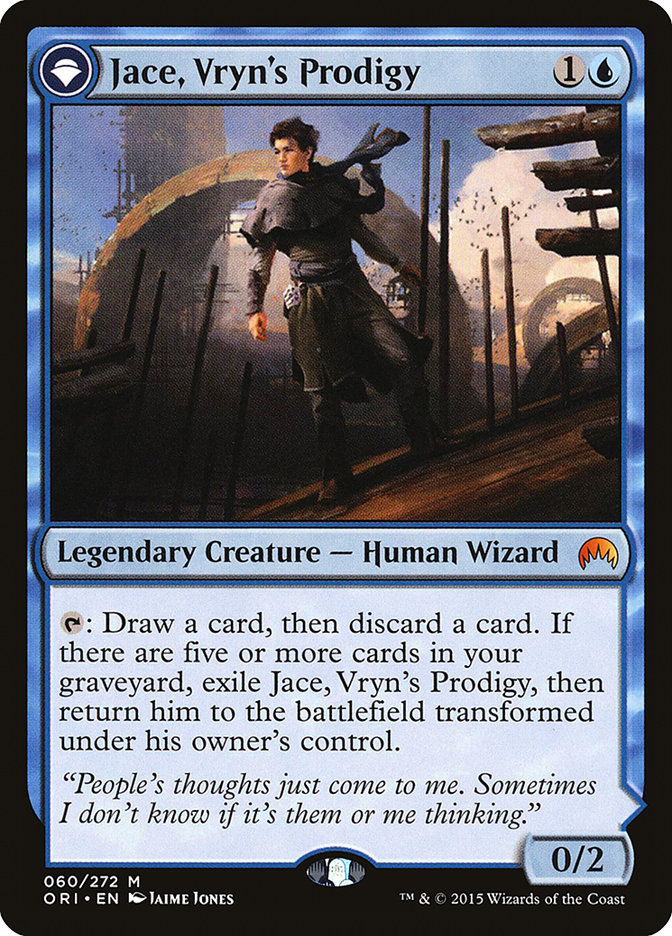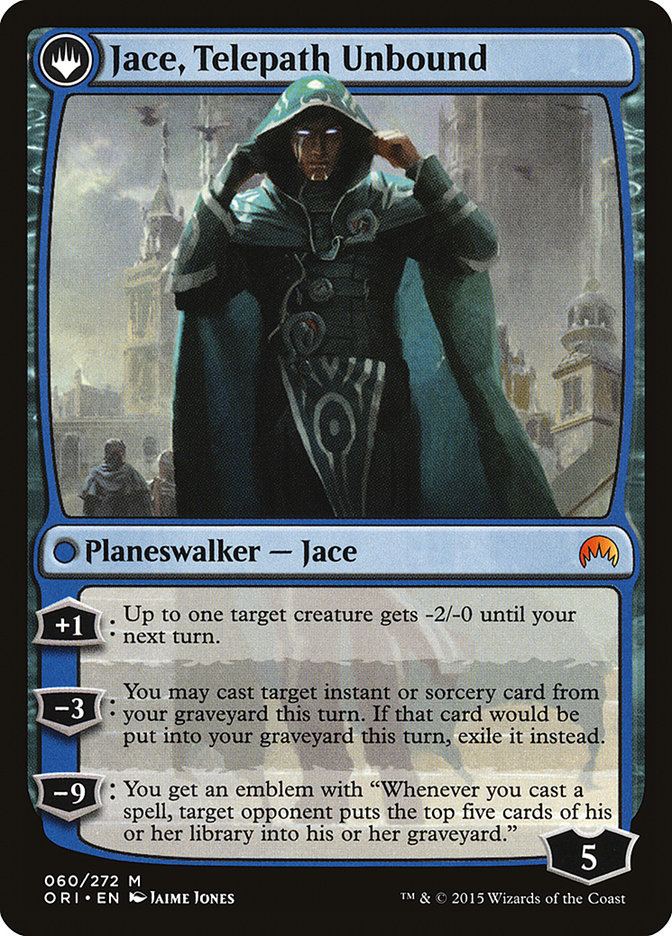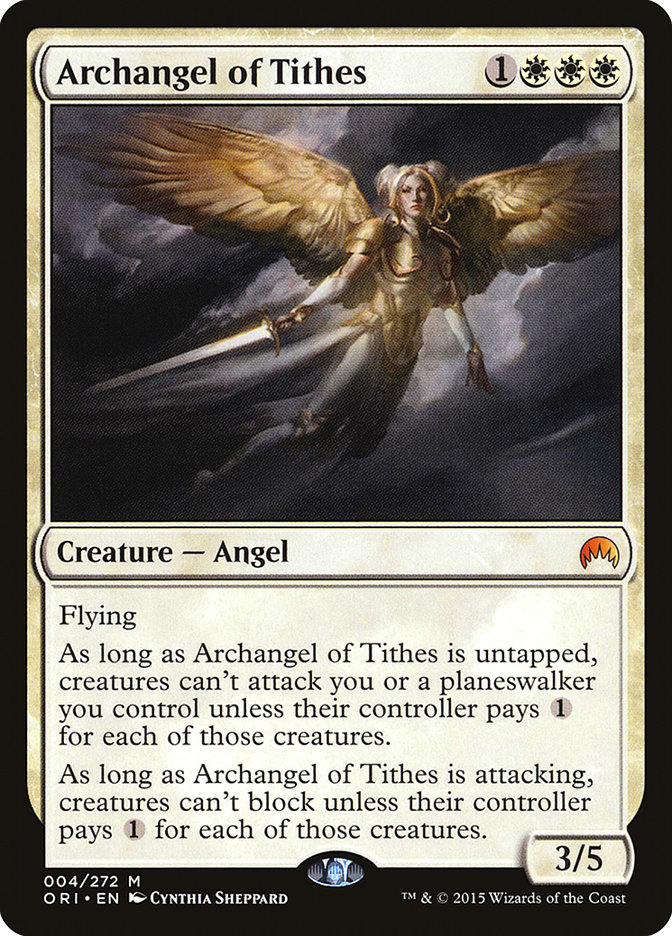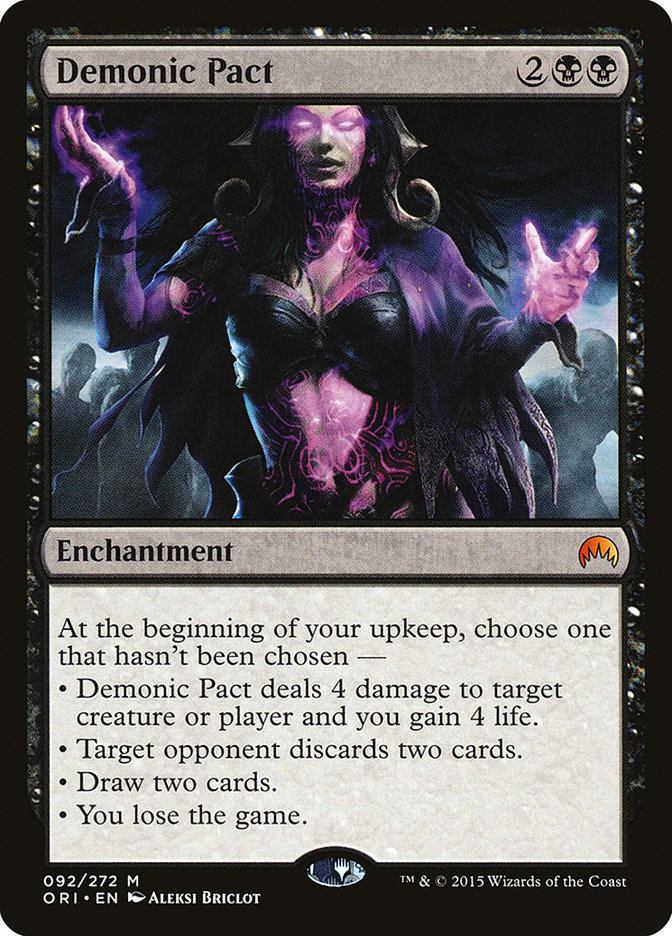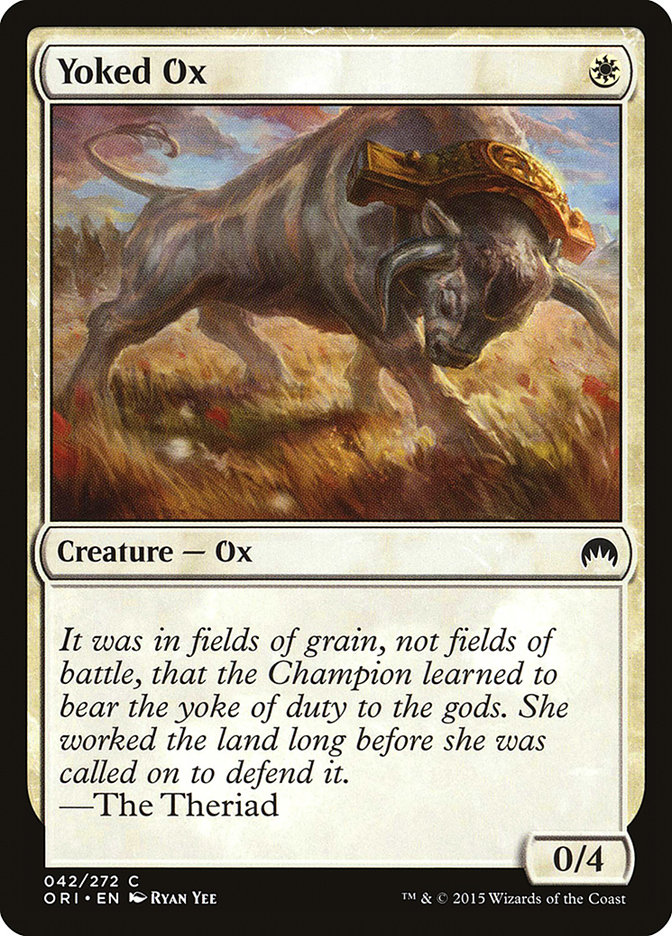Get ready for the best Magic article you’ve ever read.
That’s right this is the big one. The one you’ve been waiting for. The article that will change how Magic, nay your very life, is played for the better. The Most Epic and Life Changing Magic Article Ever.
Here I go…
Whoops, deleted it trying to copy it over here.
C’est la vie. Instead, how about I just share some thoughts on Magic Origins, rules changes, and mindset stuff? That’ll be good too.
Magic Origins And Evaluating New Cards
This is a skill that’s becoming important now more than ever in Standard for three big reasons.
1) Card balance is the best it’s ever been. It’s rare that cards will crush a Standard format for longer than a few weeks at a time, so it’s important to know what cards work best to crack other decks that are currently popular.
2) There are more options. Cards are not only balanced better but there are more playable options. Instead of Doom Blade or Go for the Throat you’ll have to choose between Reave Soul, Bile Blight, and Ultimate Price. Answers are weaker and creatures are stronger, which makes choosing the correct tools very important. I find myself baffled much more often by new cards’ playability. Is this card the nuts? Just under the threshold for Standard playability? Unplayable? A role-player in a certain archetype? It’s just harder to tell nowadays.
3) Sets are going to leave Standard more often, which means more large shifts in the metagame. When sets leave and new sets enter is when Standard is at its most volatile and uncharted, and that’s going to be happening more often.
Here are a few suggestions for evaluating new cards and building decks with them upon a sets release.
- Identify the potential powerful new cards. Read articles, scan the spoiler, and make a list. Check it twice. Gonna find out who’s Naughty and Nissa.
- There are two basic categories: Powerhouses and build-around-me cards, and potential role players and sideboard cards.
- Try out the cards with quick-and-dirty decklists, against someone who’s making also trying out their own new decklists, to get a feel for the new cards.
- Update as SCG Opens and other tournaments happen and try new lists.
- Build upon existing archetypes and dream up creative new ideas that might work. Try the creative lists against stock lists.
- Pick a new pet card and run with it.
- Refine your lists. What popular decks beat your deck of choice? What could possibly beat your deck? What part of the metagame do you expect, and which deck is good and good against that?
Evaluating New Limited Formats
Methods for evaluating Limited formats, like ranking pick orders, are useful in the beginning but quickly becomes less and less useful the more practice you get. Everything is just the scaffolding that falls away once the beautiful sculpture that is your understanding of the format takes shape. Use the framework to build up your sculpture and then let it fall away. Without the framework you will have a lumpy, low-to-the-ground work of art, but if you rely on the scaffolding it will obscure what’s underneath.
Everything’s different when the pressure’s on and you’re drafting. Cracks in your foundation will cause you to crumble, so make sure you have the training wheels off before then.
I love to draw cards. Jace, the Living Guildpact was just to lull you into a false sense of security (and really makes me question the strength of the Guildpact). Never count Jace out, even if Jace, Vryn’s Prodigy doesn’t look that exciting at first glance.
Jace, Vryn’s Prodigy has a lot of text. He draws cards, protects himself (and you), eventually can generate card advantage, and is even a win condition (one that’s clunky and very slow, but can still win the game singlehandedly.)
Still, the key to Jace, Vryn’s Prodigy is that he is cheap. Two mana is not a large investment. Dropping Jace, Vryn’s Prodigy on turn two seems great in almost all situations. He enables Delve and smooths your draw in the early game, then he becomes a high-loyalty annoyance for your opponent in the late game.
Drawing him later on in the game is a little less appealing, but even then it’s still not too bad since you presumably have a full graveyard and can flip him immediately after a turn. His ability to recast spells is going to be the major payoff here, and Dig Through Time will likely be a very common target since it has such great synergy with both his sides.
Jace, Vryn’s Prodigy will likely find a place in Jeskai Aggro and Jeskai Tokens, but could also see play in a deck like this:
Creatures (30)
- 4 Thassa, God of the Sea
- 2 Satyr Wayfinder
- 4 Stratus Dancer
- 4 Shorecrasher Elemental
- 4 Silumgar Sorcerer
- 4 Jace, Vryn's Prodigy
- 4 Faerie Miscreant
- 4 Harbinger of the Tides
Lands (24)
Spells (6)

A hilarious Magic card, mostly because the standard reaction when you see it is “Sweet card, maybe even Modern-playable as an option like Linvala, Keeper of Silence. Works well against Splinter Twin… oh. :(”
(Splinter Twin can combo off and tap Archangel of Tithes with the last copy.)
Same thing with Demonic Pact for the first time. “What an interesting card. So you get four abilities and get to use each one once. Wow, Warleader’s Helix, that’s a great start! Divination too, jeez sure this card is a little slow but that’s a lot of value. Mind Rot??? This card is going to dominate… oh. :(”
(Losing the game is bad.)
Epic
Hey I realized there should be a backup of the epic article I wrote. Yup, here it is.
The Most Epic And Life-Changing Magic Article Ever: The Origin Story Of Yoked Ox
Yoked Ox stared across the battlefield. Five of the multiverse’s greatest planeswalkers stared back. It was hopeless.
Then Yoked Ox felt something inside, something bright and warm and sunny-side up. Yoked Ox’s spark was igniting.
“Let me ox you something. Did you really think you could defeat me that easily? Because if you did… the yoke’s on you.”
Is Magic A Sport? Is Magic Art?
Yes and yes, depending on who you ask. No and no, depending on who you ask. Does it change the experience of what Magic is? Of course not. Magic is obviously competitive and you can also express your creativity and personality by building decks or making plays. Labeling it doesn’t change the experience.
Balance
As a pro player, it can be hard to find the right amount to be playing Magic. You make your own hours and the amount you practice isn’t always directly correlated with how well you do. Are practice sessions necessary? I often ask myself: Am I doing too much? Too little? Streaming, writing articles, going to tournaments and balancing the rest of life can be difficult. A little discipline goes a long way, but so does making sure you remember that Magic is a game, it was meant to be just enjoyed from time to time. If you give yourself enough breathing room that you’re actively drawn to playing more without needing to play more, you’re doing things right.
Start Scrying
First of all, I called the new mulligan rule (anyone who mulligans gets to scry one at the start of the game) months ago: “My body is a Temple. I scry 1 as soon as I sit down to start a match.”
First of all, sometimes a scry is just a scry. Scry is good in all decks, and I don’t think it will make too much of a difference what archetype or format or cards you have. That said, little edges do matter. Delver of Secrets, for example, isn’t going to suddenly shoot up in value just because of the rule since it only matters when you’re on the play, don’t have a fetchland, have mulliganed, and actually scry away a card.
Scrying seems more impactful in older formats, finding Ancestral Recall, or your combo pieces, or a second land, will have a bigger effect on faster formats. In sealed, games go longer and that scry will matter less and less as the game progresses.
I think going first gets better with the new rule, since mulligans hurt less, and that is one traditional downside to going first: you don’t have that extra draw step to help smooth out any bumps.
Although I think the new rule is interesting, is certainly worth a try, and is probably a great addition to the game, it isn’t elegant. It pushes Magic to being more complicated and rewarding better players (which I personally like) but it might not necessarily be good for the game in general. Should Magic embrace its complexity and be the best and most punishing form of Wizard’s Chess out there?
The universal board positioning rules also seems great. Reading your opponents board state at a glance becomes much harder when it isn’t in a default position. Other things that can slow down the game:
- Hiding your hand
- Hiding mana producers with your lands
- Stacking your lands into a pile
- Stacking your graveyard into a pile
Mindset
So many techniques, so little ability to actually remember to use them all.
- Want it for the right reasons. Why do you compete? Love of the game and love of competition? To improve and reach your highest potential? This will build a strong and pure fire within your belly.
- Don’t give a hoot. You’re going to lose. A lot. You don’t always get what you want. If you can combine the desire to win with the ability to lose and still enjoy yourself, you really don’t need anything else in this world.
- Visualization. Write down what you desire and imagine what it would look like if you were there. You’ll be able to see the path it takes to get there and be drawn towards it.
Car Wrecks
Everyone driving by a car crash can’t help but slow down and look. Do they need help? Is anything interesting happening? It’s human instinct.
With Canada Day and Independence Day just happening, many of us are reminded to appreciate what we have. Canada is the best and I feel very fortunate to live here. But plenty of other places and people are great too. Even as I say “Canada is the best,” I’m necessarily implying other places are worse. And really what do I know? I’m biased.
Red or Blue? Pick your side and yell at anyone who disagrees. Aggro players are scum. Control players are heartless and sadistic. Partiality can lead to some fairly ridiculous statements and terrible things.
Twitter, Facebook, celebrities – every opinion is out there and fighting every other opinion, which can cultivate toxic environments. Often it seems like we’re hoping from site to site just to find anything that will hold our attention for more than a moment, positive or negative. I’m not saying don’t have an opinion, or not to voice it, just remember that the words on the screen came from another human being trying to muddle through this crazy world as well.
You don’t always have to slow down, stop, and tell the other driver what they did wrong to end up in the ditch. It might not be exciting to drive right on by, but it keeps the roads clear and makes fewer cars veer off into the muck.
Flipping Out
That’s all for today, enjoy your Magic Origins Prerelease, and may your planeswalkers not encounter a removal spell in response to their flip triggers.

